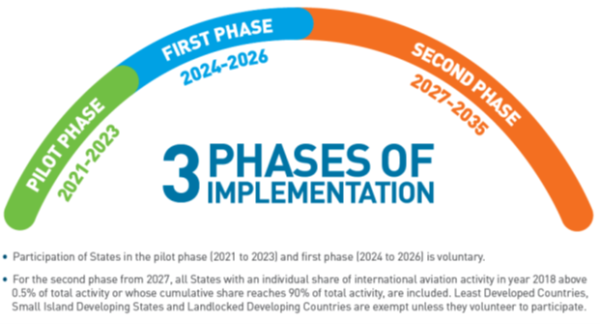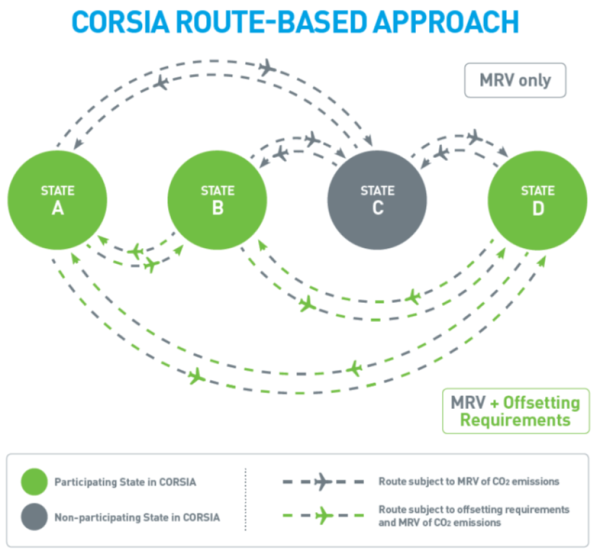Part 1: Overview of Carbon Offsetting and Reduction Scheme for International Aviation (CORSIA)
Why is it necessary to implement CORSIA?
According to the Intergovernmental Panel on Climate Change (IPCC), aviation (both domestic and international) is responsible for about 2% of global CO2 emissions from human activities. Data from 2015 indicates that approximately 65% of the fuel consumed by the aviation industry is used for international flights. Therefore, international aviation contributes roughly 1.3% of total global greenhouse gas emissions.
Under the Paris Agreement within the framework of the United Nations Framework Convention on Climate Change (UNFCCC), domestic aviation emissions are tracked and reported in national greenhouse gas inventories and are considered in each country’s Nationally Determined Contributions (NDC) for emission reduction targets. In contrast, international flights must be reported separately and are not included in the NDC targets.
Therefore, the International Civil Aviation Organization (ICAO) has set its aspirational goal of carbon-neutral growth from 2020 onwards and is implementing CORSIA to contribute to the objectives of the Paris Agreement.
What is CORSIA and how does it work?
CORSIA is a program designed to help ICAO achieve its goal of carbon-neutral growth from 2020. CORSIA allows the use of eligible emissions units from the carbon market to offset the amount of CO2 emissions that cannot be reduced through the use of technological and operational improvements, and CORSIA eligible fuels.
The definition of the CORSIA baseline is as follows:
- For the years 2021-2023: the CO2 emissions from international aviation for the year 2019
- For the years 2024-2035: 85% of the CO2 emissions from international aviation for the year 2019
For any year from 2021 onwards, the international aviation CO2 emissions covered by CORSIA that exceed the baseline level needs to buy carbon credits for offsetting requirements.

Implementation phases of CORSIA and national participation obligations
CORSIA will be implemented in three phases, as follows:
- Pilot phase: 2021-2023
- First phase: 2024-2026
- Second phase: 2027-2035
The difference between the phases is the participation of States. In the pilot phase and the first phase, participation is voluntary. However, starting from the second phase in 2027, besides the voluntary states, all states which have their individual share of international aviation activity in 2018 exceeds 0.5% of the total, or if their cumulative share reaches 90% of the total activity, are required to participate. Thus, Vietnam is on the list of countries that will be required to implement CORSIA starting in 2027.

Furthermore, CORSIA applies route-based approach, specifically:
- A route is covered by the CORSIA offsetting if both States connecting the route participate in the scheme
- A route is not covered by the CORSIA offsetting if one or both States connecting the route do not participate in the scheme.
Due to the route-based approach, those countries which are not participating in CORSIA, such as Vietnam, have their airlines operating flights on routes between two CORSIA-participating countries, also subject to the offsetting obligations for greenhouse gas emissions on those routes under CORSIA. It should be noted that the applicability of CORSIA offsetting requirements and the applicability of CORSIA monitoring, reporting and verification (MRV) requirements are not the same. The CORSIA MRV requirements are applicable to all aeroplane operators that produce annual CO2 emissions greater than 10 000 tonnes from the use of aeroplane(s) with a maximum certificated take-off mass greater than 5 700 kg conducting international flights.

Summary by Hong Loan & Linh Nguyen Le (To be continued…)
5,237 views, 2

Tags:
Bài viết liên quan